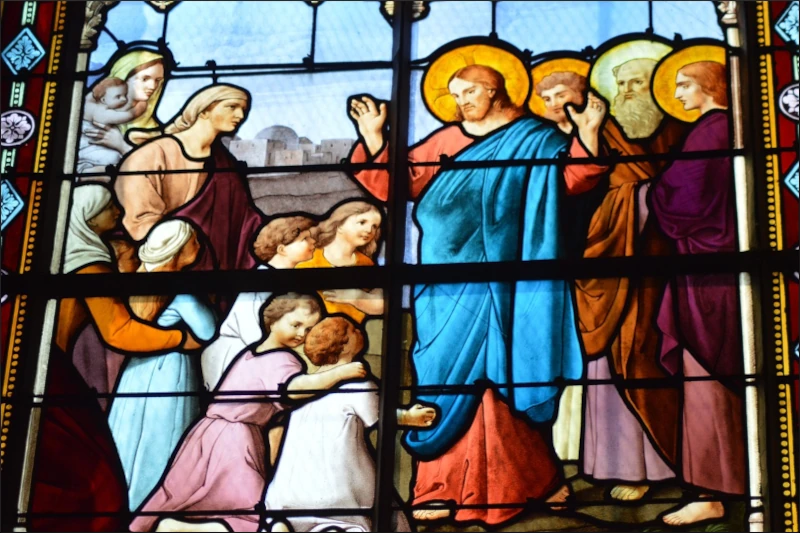
Hello Everyone,
I'm working on an updated version of my book, The Holy Spirit – Walking in the Spirit, which I expect to release in March-April 2025. Writing a book that challenges deeply held beliefs is never easy, and avoiding alienating your audience is generally wise. However, my commitment to truth compels me to speak honestly, even if it stirs controversy and decreases book sales. This revised edition confronts issues at both ends of the Christian spectrum: addressing the Christian Conservatives, including Fundamentalists and Evangelicals, and the Charismatics, encompassing Pentecostals and Apostolic Churches. It's a message that may provoke strong reactions, but I believe it needs to be shared.During my research for the updated edition of my book, I uncovered a fundamental shift in the Charismatic movement in recent years. These changes are so significant and far-reaching that I've devoted an entire chapter to exploring them in depth. The chapter, titled “The New Charismatic Movement,” examines this transformation and its profound implications for the church today.
In this blog, I want to explore some key transformations within this new movement and examine how they impact Believers. We'll also critically analyze the validity of its teachings. At its core, this emerging movement represents a troubling fusion of New Age philosophies with the false doctrines of the New Apostolic Reformation (NAR). It is steeped in mysticism and promotes a merit-based approach to one’s relationship with God, distorting foundational Christian principles.

Image Credit: Pixabay.com
The New Apostolic Reformation (NAR)
The NAR promotes the belief that individuals can become apostles today, a teaching that directly contradicts biblical doctrine. According to Scripture, one of the fundamental requirements for apostleship is having personally seen Jesus (Acts 1:21-22). To sidestep this clear qualification, the NAR often asserts that Jesus has appeared to their leaders, a claim that raises serious questions about biblical integrity and accountability.Another primary concern with the NAR is its teaching on the Gifts of the Spirit. The NAR claims that these gifts can be taught, learned, or acquired through human effort, an entirely unbiblical notion. Scripture makes it clear that the Gifts of the Spirit are not a matter of personal choice but are determined and distributed solely by the Holy Spirit (1 Corinthians 12:11). This misrepresentation undermines the divine nature and purpose of spiritual gifts.
Bethel Church in Redding, California, stands at the forefront of this movement, even offering an academy purportedly designed to help individuals "acquire" spiritual gifts. The overall Bethel Church experience can feel like stepping into a scene from a Harry Potter novel—intriguing, entertaining, and thought-provoking. However, its teachings and practices are deeply flawed and unbiblical beneath the surface.

The New Guy In Town
The good news is that the NAR is waning. The bad news, however, is that it has morphed into something even more destructive and insidious. Its teachings are so layered with falsehoods that discerning the truth can feel like an uphill battle. Adding to the confusion is that roughly 90% of what they teach aligns with biblical truth, which lends credibility to the remaining 10%. It’s the 10% that contain the dangerous falsehoods that can lead believers astray. This mixture of truth and error makes it all the more important to approach their teachings with discernment and a firm foundation in Scripture.In preparation for writing my book, I immersed myself in their world—I watched YouTube videos, followed their activities in the news, and even purchased and read some of their books. I aimed to dissect their motives and understand the strategies behind their teachings. It hasn't been an easy journey, but the Holy Spirit has faithfully guided me toward truth, illuminating the path at every step.
The "new movement" hasn't been officially labeled yet. In fact, I don't believe anyone else has identified it—at least not in the way that the Holy Spirit has revealed it to me. This revelation isn't due to my intellect or discernment; the Holy Spirit first brought it to my attention. I've called it “The Ekklēsia”—the Greek word for church—because that’s how its followers frequently refer to themselves. They say it in such a way that using the Greek word makes them special in some way.

Image Credit: Pexels.com
Earmarks of the Ekklesia
Here are some of the problems and earmarks of the Ekklesia:
- Unlike the NAR, the Ekklēsia does not teach that spiritual gifts can be taught or acquired. Instead, they believe that most people already possess spiritual gifts but lack the understanding or knowledge to use them effectively—particularly the Gift of Prophecy. Consequently, their focus shifts from instructing people on "acquiring" gifts to teaching them "how to utilize what they already have." While this approach may seem more aligned with Scripture, the application is too broad and inclusive.
- The NAR's apostleship has been replaced with “extremely gifted leaders.” These leaders have extraordinary spiritual skills, including talking to God (audibly) on a regular basis. Most of them seem to have all the spiritual gifts, not just one or two.
- They are highly knowledgeable in biblical languages, often demonstrating proficiency in Greek and occasionally Hebrew and Aramaic. They also claim to have a deep connection to Judaism, asserting that this enables them to grasp the original context, intent, and meaning behind the passages they reference. While their linguistic and cultural insights may appear impressive, their interpretations should still be scrutinized in light of Scripture.
- One of the most significant challenges in addressing their teachings is the bold and often extravagant extrapolations they draw by combining Scripture with their so-called "special knowledge." They frequently make claims that go far beyond what Scripture reveals or what we can reasonably know. These speculative interpretations become the foundation for new doctrines or a proclaimed "word from the Lord," leading many astray under the guise of divine authority.
- Their explanations are often excessively wordy, employing an overabundance of language to convey their points in an intellectual and sophisticated way. However, despite the sheer volume of words, their explanations frequently fail to provide genuine clarity or understanding. Instead, they create the illusion of expertise while offering little meaningful insight into the subject at hand.
- They all claim the title of "prophet," offering supposed insights into the future. Unfortunately, their predictions are often so vague and broad that their actual meaning or relevance is nearly impossible to discern. Looking backward, it's occasionally possible to retroactively align some of their predictions with real-world events—much like people do with the quatrains of Nostradamus. However, it's impossible to determine any clear direction for the future from their prophecies.
- The most egregious offense is when they make specific prophecies that ultimately prove false. According to Scripture, such individuals are labeled "false prophets" (Deuteronomy 18:20–22), and the penalty prescribed for them is severe: “They must be put to death.” To avoid accountability, these false prophets often deflect by claiming that the outcome changed because people repented or performed some holy act to alter the course of events. This tactic undermines the seriousness of biblical prophecy and manipulates believers into accepting their errors.
- They exhibit an exaggerated focus on End-Times events, but their emphasis is not on the anticipated return of Jesus Christ. Instead, they fixate on themes of suffering and judgment directed at others. This approach often comes across as a "holier-than-thou" attitude, portraying themselves as spiritually superior. By leveraging fear, they aim to bolster their credibility and authority, drawing followers under the guise of prophetic insight.
- They claim to possess the gift of healing; however, they rarely, if ever, engage in one-on-one interactions to heal individuals. Instead, they conduct broad, impersonal healings through television or radio, often targeting vague, unnamed audiences. This lack of direct accountability allows them to avoid scrutiny, misleading followers into believing miraculous events have occurred solely because of their actions. These claims often go unverified, leaving many deceived by the illusion of spiritual power.

Final Thoughts
I have invested countless hours and days studying these individuals and their teachings. This movement is rapidly becoming a new trend within church circles. However, I don't believe most of them intentionally try to deceive others. Instead, they seem to have fallen victim to their own pride and arrogance, unknowingly propelled by a demonic agenda working behind the scenes. In their self-deception, they genuinely believe they are special, possessing unique powers and spiritual gifts. This conviction only reinforces the dangerous influence they wield over their followers.We must remember that Satan is exceptionally wise and cunning, using his intelligence to deceive. Scripture warns us in 2 Corinthians 11:14 that "Satan himself masquerades as an angel of light." This fact means he often appears to be a person of God, presenting himself as righteous and trustworthy. Deception and lies are central to his modus operandi, and one of his most effective strategies is intertwining falsehoods with truth. As I've previously noted, this same tactic is evident in The Ekklēsia, making their teachings all the more dangerous and difficult to discern.
This movement is starting to descend through the Pentecostal, Apostolic, and some non-denominational churches. Deception doesn’t have a label that says:
Deception always appears as something good, positive, and wonderful. Its teachings appear reasonable, logical, beneficial, and compassionate. It’s often accompanied by signs and wonders as "proof of its validity." Be careful. Be alert and test everything your church does and says against the scriptures.
Matthew 24:23-24 NIV
If you ever have questions, contact me. My contact information is on our website.
God Bless!
Mark
Questions For Further Study
- What are the key differences between the New Apostolic Reformation's (NAR) teachings on spiritual gifts and traditional charismatic interpretations?
- How does the integration of New Age philosophies into the Charismatic movement impact its theological foundations?
- What criteria should be used to discern genuine spiritual leadership versus the self-proclaimed apostles and prophets described in the blog?
- How can believers effectively guard against deception within emerging church movements like "The Ekklēsia"?
- What are the broader implications of these movements on the global church and its unity?

